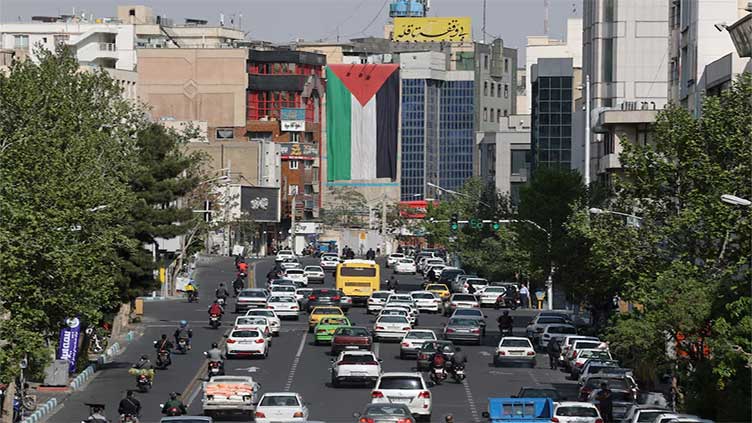Iranians anxious as Israel weighs strike response

World
Political and military leaders have repeatedly warned that they will respond to any retaliation
DUBAI (Reuters) – The prospect of Israeli retaliation against Iran for its drone and missile attack at the weekend has alarmed many Iranians already facing economic pain and tighter social and political controls after protests in 2022-23.
Iran's political and military leaders have repeatedly warned that they will respond to any Israeli retaliation by escalating further, potentially triggering yet more attacks.
And that would only be bad news for ordinary people, said 45-year-old teacher Hesam from the northern city of Amol.
"Economic pressure will mount, our safety will be jeopardized ... We must avoid conflict at all cost. I don't want a war. How can I protect my two children? Nowhere will be safe."
Housewife Parvaneh fears an Israeli strike could be the final hammer blow to the economy, weakened by years of sanctions, mismanagement and corruption.
"We Iranians have endured more than enough for years. War brings only disaster. My husband is a factory worker. We do not have even enough money to buy staples let alone stockpiling them," said the 37-year-old mother-of-two in the central city of Yazd.
Middle and lower-income Iranians are shouldering much of the burden of the existing economic woes, with inflation over 50%, rising utility, food and housing prices and the rial currency falling sharply.
There has been pride mixed in with the fear over Iran's retaliation against what Tehran said was an Israeli strike on its consulate in Damascus on April 1.
"I am so proud of the attacks on Israel. They started it. We had to retaliate. Israel cannot do a damn thing. They know Iran is very powerful," Hossein Sabahi, 30, a government employee in Tabriz city, told Reuters.
Shortly after the attack, state TV showed small demonstrations in several cities in support of Tehran's unprecedented assault, with people chanting "Death to Israel" and "Death to America".
'WE WILL BE MORE ISOLATED'
But the markets show the harsh economic realities behind the defiance.
War jitters sent demand for hard currency soaring. The rial briefly plummeted to a new record low of around 705,000 to the US dollar during Saturday's attack according to Bonbast.com, which gathers live data from Iranian exchanges.
"People are buying hard currency since Sunday. There has been a boost in my business due to the fear of war," said a businessman in Tehran.
Iran's rulers may also have something to worry about.
The intelligence unit of Iran's Revolutionary Guard Corps issued a startling statement on Sunday warning against any pro-Israeli posts by Iranian social media users, state media reported.
Some Iranian opponents of the clerical establishment, inside and outside Iran, have gone as far as voicing support for Israel online.
"Many people are frustrated because of economic woes and social restrictions ... An Israeli strike could unleash their pent-up anger and revive protests, which is the last thing we need when threatened by a foreign enemy," said a former official in Iran's moderate camp.
The overall sense of anxiety only increased when some Western governments began evacuating the families of their diplomats, reminding older Iranians of the feverish atmosphere when Iraq invaded in 1980 or during the tumult of the 1979 revolution.
"Foreigners leaving Iran is a sign that we will be attacked by Israel ... We will be more isolated ... we will be more miserable," said engineer Mohammad Reza in Tehran, who like others did not want to give his full name.



